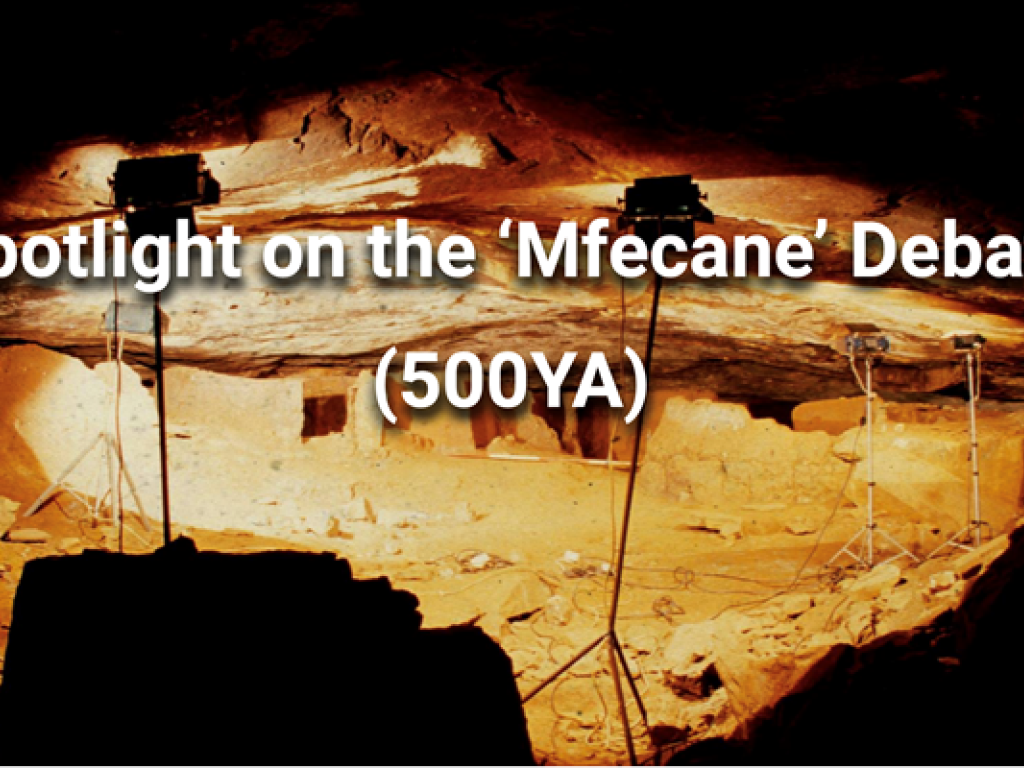Spotlight on the ‘Mfecane’ Debate

Henry Fagan
The FHYA has completed a new presentation called ‘Spotlight on the Mfecane Debate’ that commemorates the 30-year anniversary of ‘The ‘Mfecane’ Aftermath: towards a new paradigm’ colloquium, which was held at Wits in September 1991. The colloquium, organised by Carolyn Hamilton, focused on the then-emerging mfecane debate. Mfecane was conventionally understood as a prolonged period of violence and dislocation across much of southern Africa during the 1820s and 1830s, but consensus was rocked following the publication of Julian Cobbing’s polemic ‘Mfecane as Alibi’ argument in the Journal of African History in 1988. Cobbing argued that it was European slaving and expansionism, not the rise of the Zulu kingdom, which caused the mfecane. He further claimed that ideas about the Zulu kingdom’s role in the upheaval was deliberately engineered by Europeans to deflect culpability.
At the 1991 colloquium, Cobbing’s claims – many of them controversial – were subjected to scrutiny by numerous scholars. Among them was John-Omer Cooper, whose 1966 book, The Zulu Aftermath: A Nineteenth-Century Revolution in Bantu Africa, was a pillar of the established ‘internal-revolution’ interpretation of mfecane. The colloquium saw several sprawling debates emerge that drew the historical evidence for mfecane into question. Although elements of Cobbing’s arguments were refuted, his overarching critique endured. Thirty years on, it is widely recognised by scholars that the mfecane debate significantly reshaped how the history of the period before colonialism in southern Africa is engaged.
With ‘Spotlight’, FHYA recaptures the debate and its offshoots and introduces users to the sources and scholarship which underlie them. Users are invited to examine the original 1991 colloquium papers and watch a video recording of the opening and closing sessions. ‘Spotlight’ also supplies users with a timeline feature to help them track the complex history of the term ‘mfecane’ itself, which first appeared in writing in 1825. To help users grapple with complexities of Cobbing’s argument, a bibliogram has been created to map Cobbing’s central claims and track scholarship about them. The presentation also contains an extensive bibliography with live links to important papers and publications housed on FHYA’s 500 Year Archive.
A shortcoming of the 1991 colloquium and of mfecane scholarship at large is scholars’ general inattention to African sources and historiographies. Establishing a research resource to overcome this oversight is one of the central aims of ‘Spotlight’. To help draw attention to the issue, ‘Spotlight’ presents a digitally enhanced pre-print version of Nomalanga Mkhize’s essay “In Search of Native Dissidence” (2018), an important paper which speaks to the need for further study of vernacular sources and historiographies.